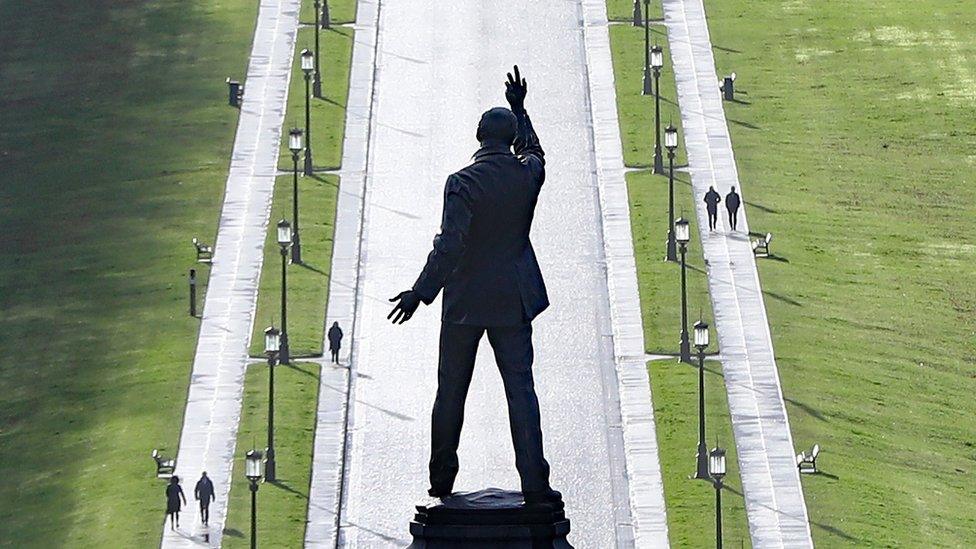Stormont deal: BBC News NI experts examine the NDNA detail
- Published
As the parties consider the British and Irish governments' proposals for the restoration of devolution, BBC News NI's experts give their evaluation of the New Decade, New Approach document.

The money
John Campbell - BBC News NI Economics & Business Editor
How much money is the UK government putting on the table in an attempt to get Northern Ireland's politicians to return to Stormont?
The Secretary of State, Julian Smith, was not giving much away on Friday morning.
He referred only to "a significant financial package" but would not put a specific number on it.
But we can attempt to match money to some of what is in the draft deal.
Firstly, there is a commitment to tackle Northern Ireland's waiting lists, which are the worst in the UK.
Last year, the most senior official in the Department of Health said it would take between £700m and £1bn to clear the lists.
The Ulster University economist and former MLA, Esmond Birnie, said "a reasonable reading of the text would suggest the UK government will foot the waiting list bill".
Pay dispute
Mr Smith said the money is there to settle a health service pay dispute which has seen nurses and other workers go on strike - requiring a further £50m.
There is also a commitment to "urgently resolve" a separate pay dispute with teachers - requiring another £70m.
There is an additional education commitment on ensuring every school has "a sustainable core budget."
In the last financial year, Northern Ireland's schools exceeded their budgets by £22m, but principals will say that was after already squeezed budgets.
There is also a commitment to increase the number of police officers by about 800 to 7,500 - that would require an additional £40m a year.
There is a raft of other specific measures that the UK government says it will fund, including mental health services, tackling paramilitarism, a culture and community fund and a fund to promote the competitiveness of Northern Ireland's economy.
When it comes to infrastructure spending, it appears that Northern Ireland will simply be getting its usual share of the spending increases that are planned for England.
That is worked out using the population-based Barnett formula.
This will still mean a significant uplift as the chancellor of the exchequer has promised the next UK budget will include "an extra £100bn of investment in infrastructure over the next few years."
The Irish government is also putting money on the table.
The Tánaiste, Simon Coveney, says his government is prepared to invest 110m euro in infrastructure projects in Northern Ireland over the next three years.

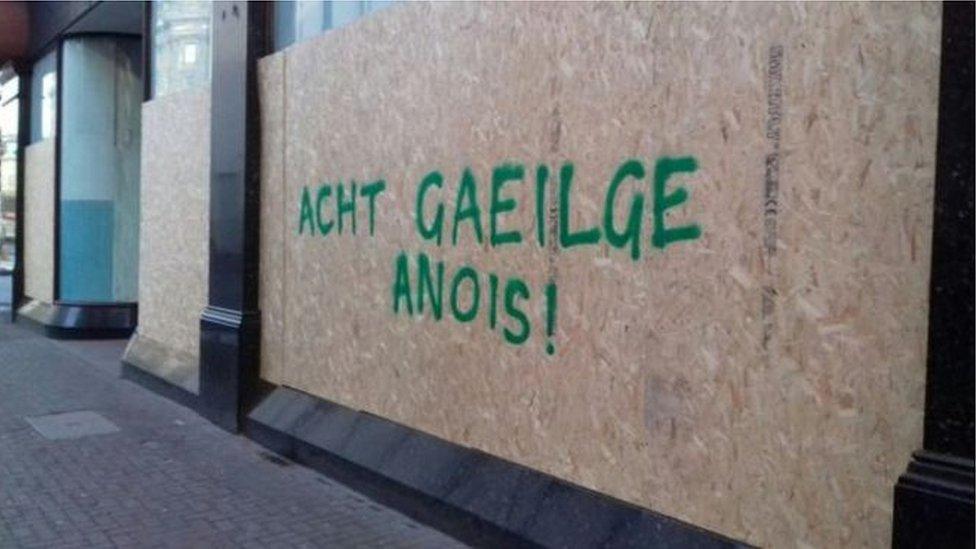
Language
Robbie Meredith - BBC News NI Education Correspondent
There is a lot in the draft deal which is similar to previous versions of a proposed Irish language act drawn up by government departments and campaigners.
For instance, the appointment of an Irish language commissioner, standards public bodies have to meet to deliver services in Irish, simultaneous translation services in Irish - and Ulster-Scots - in the assembly, and the repeal of an act dating from 1737, which bans the use of Irish in courts.
Many similar measures, including a commissioner, will be put in place for Ulster-Scots.
However, there are also some crucial provisions in the draft deal that may prove a problem for Irish language advocates.
For a start, while there is proposed new legislation on Irish and Ulster-Scots, it comes in the form of amendments to the existing Northern Ireland Act, 1998, rather than in the form of a new stand-alone act.
Proposals from the Irish language commissioner also have to be approved by the first minister and deputy first minister before becoming practice.
If, for example, the commissioner said the Department for Infrastructure should provide bilingual signs on all main roads would there have to be political agreement before this could go ahead?
That will be one of the questions being asked by language groups and politicians.


Education
Robbie Meredith - BBC News NI Education correspondent
The draft deal offers a lot of tempting commitments in education.
The need for "transformation" of the system to raise standards and improve sustainability has been a mantra recently.
The deal says the way education is run at present - with a range of sectors and school types - is "not sustainable" and it promises a "fundamental review" as a basis for change.
This would be expected to cover a number of areas - from whether more children from different backgrounds can be educated together, to more support for children with special educational needs, to tackling problems faced by pupils from disadvantaged backgrounds.
The draft deal also promises more money for schools - but does not specify a figure - and says the executive would "urgently resolve" the ongoing teachers' pay dispute.
That would cost an estimated £71m for the past two years alone.
A graduate medical school at Ulster University's Magee Campus in Londonderry is also a priority.
All will be welcomed but some will be difficult achieve and will also prompt many further questions.


Health
Marie-Louise Connolly - BBC News NI Health Correspondent
On a day when picket lines are live, the draft deal puts health and social care requirements first.
The document says the priorities for the executive should be to immediately settle the ongoing pay dispute, tackle waiting times and deliver reforms.
Workers need to achieve pay parity but they also need to feel valued and respected. While words go some way to achieving that, action speaks louder.
This is an ambitious wish list of commitments - and many of those we have seen before.
Does it tackle other and more contentious issues such as abortion? Not that I can see.
Even if a cheque is written to clear waiting lists, Northern Ireland's hospitals don't have the theatre space or the staff to deliver. Instead, it will take extensive buy-in from the independent sector.
In November 2015, the then Health Minister Simon Hamilton agreed to make £48m available to clear waiting times; the money wasn't recurrent and the plan failed.
The executive will also deliver an extra 900 nursing and midwifery training places - this was signposted by the Royal College of Nursing in 2016.
Striking an emotional chord by promising three IVF cycles is a vote winner.
This is an unexpected and clever addition, making it a little harder for the parties to reject the document.
In the health service there is no quick fix.
The executive needs to be creative. The health minister, whoever he or she might be, needs to be bold and brave.
Their in-tray is already full, but Department of Health officials say they are ready to go with strategies that just require a little convincing and a signature.
This is a leap year after all - let's see just how far the politicians and in particular a health minister is prepared to jump.

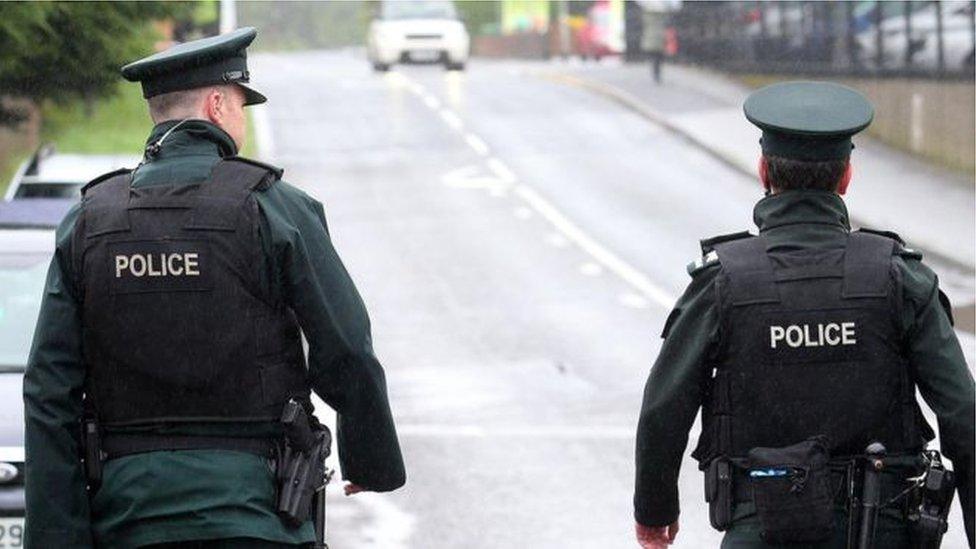
Policing and dealing with the past
Julian O'Neill - BBC News NI Home Affairs Correspondent
The deal would, after five years, see progress on a new body to handle investigations related to the Troubles.
Legacy measures, which would create an Historical Investigations Unit, were first agreed in December 2014.
The DUP is largely still on board, as is Sinn Féin.
It requires Westminster legislation, which the government has pledged within 100 days of a return of Stormont.
The big Tory majority will help - but will there be backbench demands for some form of separate legislation on military veterans as a quid pro quo?
Also, how big a dilemma is it for the Ulster Unionists in accepting the deal with the party against the legacy proposals?
But the deal appears to have succeeded in keeping a toxic issue from sinking things.
The deal would see PSNI numbers leap by 600 to the 7,500 figure suggested when it was created about two decades ago.
It would require up to £40m a year to be added to the police budget.
Politically, it's uncontroversial, especially with most additional officers likely to mean extra neighbourhood patrols.
It is a move that will take several years to manage.
It will likely mean renewed focus on the PSNI's ability to attract Catholic applicants in meaningful numbers.
Expect a new round of debate on the reintroduction of 50/50 legislation.
There would also be a new commissioner for military veterans to look after the treatment of former soldiers and their families.
The DUP has long pushed for the full extension of the UK military covenant to Northern Ireland.

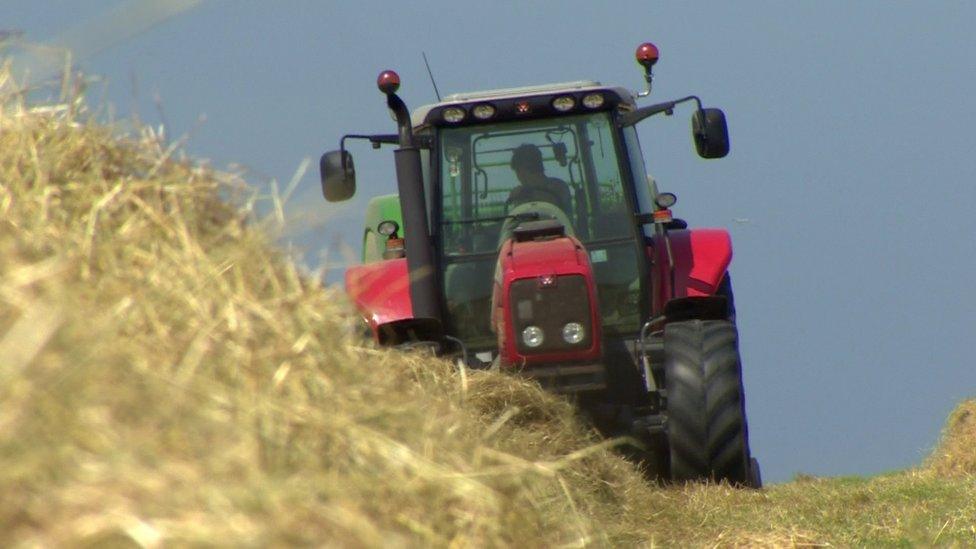
Environment and farming
Conor Macauley - BBC News NI Agriculture & Environment Correspondent
The proposed deal makes provision for a number of long-standing demands of environmentalists.
It includes the idea that a new Programme for Government would see a separate climate change act for Northern Ireland - the only part of the UK without such legislation.
Up until now, Northern Ireland has been bound by and fed into targets set by wider UK legislation.
It would mean significant challenges for farming, which is the biggest source of emissions here due to our economic reliance on agriculture.
And it would probably require financial support for farmers to pay for changes that could help them comply with new emissions targets.
There are also plans for an independent, environmental protection agency to hold government to account and to ensure compliance with environmental targets.
That idea has faced opposition in the past.
And there's the suggestion that the ill-fated RHI scheme which helped collapse Stormont would be shut down and replaced with different incentives to decarbonise heat.
That would be an issue for farm businesses which embraced the technology extensively, especially the poultry sector.

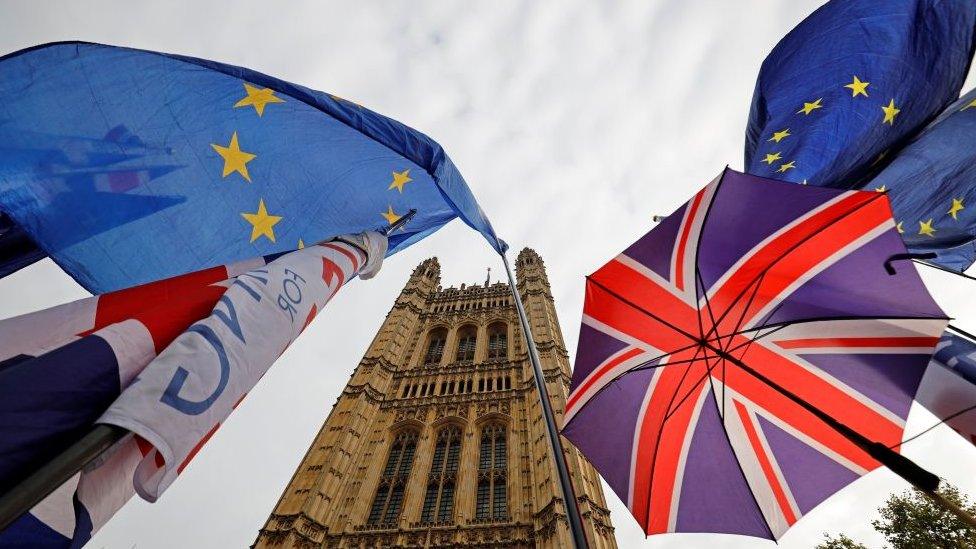
Brexit commitments
John Campbell - BBC News NI Economics & Business Editor
The UK government says it will make new legally-binding Brexit commitments to Northern Ireland if the Stormont assembly is restored.
It is promising "unfettered access for Northern Ireland's businesses to the whole of the UK".
A similar amendment to Brexit legislation was proposed by Northern Ireland parties at Westminster this week.
That amendment was not passed as it did not have government support.
The Brexit deal will mean Northern Ireland continues to follow EU rules on agricultural and manufactured goods, while the rest of the UK will not.
Additionally, the whole of the UK will leave the EU's customs union but Northern Ireland will continue to enforce the EU's customs code at its ports.
Prime Minister Boris Johnson has continually promised that those arrangements will not interfere with NI-GB trade.
The government says that if Stormont returns it will make this promise legally binding, with the law in force for 1 January 2021.
However, much will depend on the definition of "unfettered access".
This week, NIO Minister Robin Walker said there would be no new checks and processes "beyond our obligations under international law".
That still leaves open the possibility of some new administration, such as exit declarations on NI-GB trade.
The government has also committed to giving Stormont ministers a role in bodies which will oversee the Northern Ireland elements of the Brexit deal.
The operation of the whole deal will be overseen by a joint committee of the EU and UK.
It will be led on the EU side by a member of the European Commission and on the UK side by a government minister.
There will also be a specialised committee which will focus solely on the Northern Ireland part of the deal.
The government says it will ensure that representatives from Stormont will be part of the UK delegation in any meetings that are discussing Northern Ireland specific matters and that are also being attended by the Irish Government as part of the EU's delegation.
Related topics
- Published10 January 2020
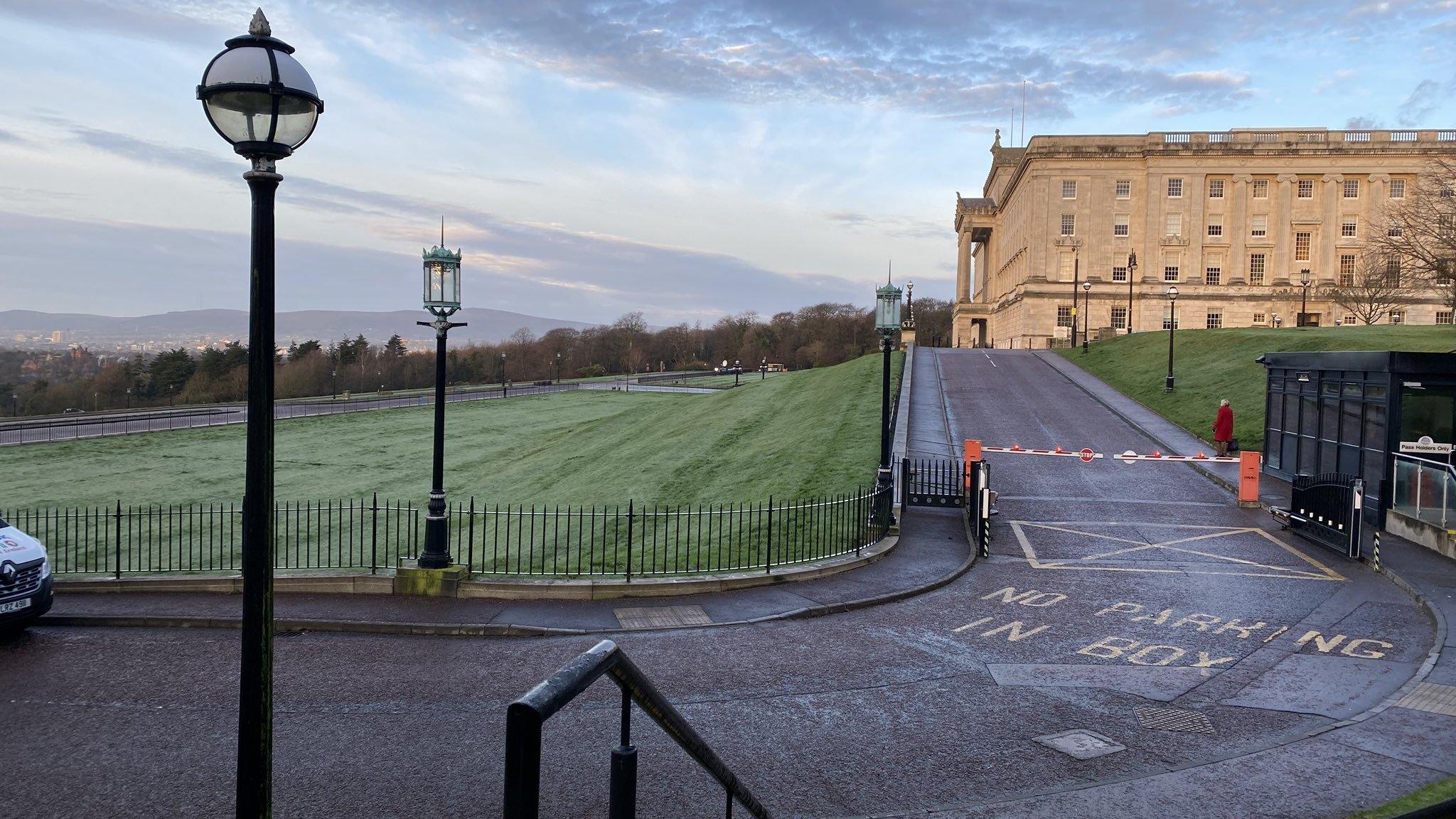
- Published10 January 2020
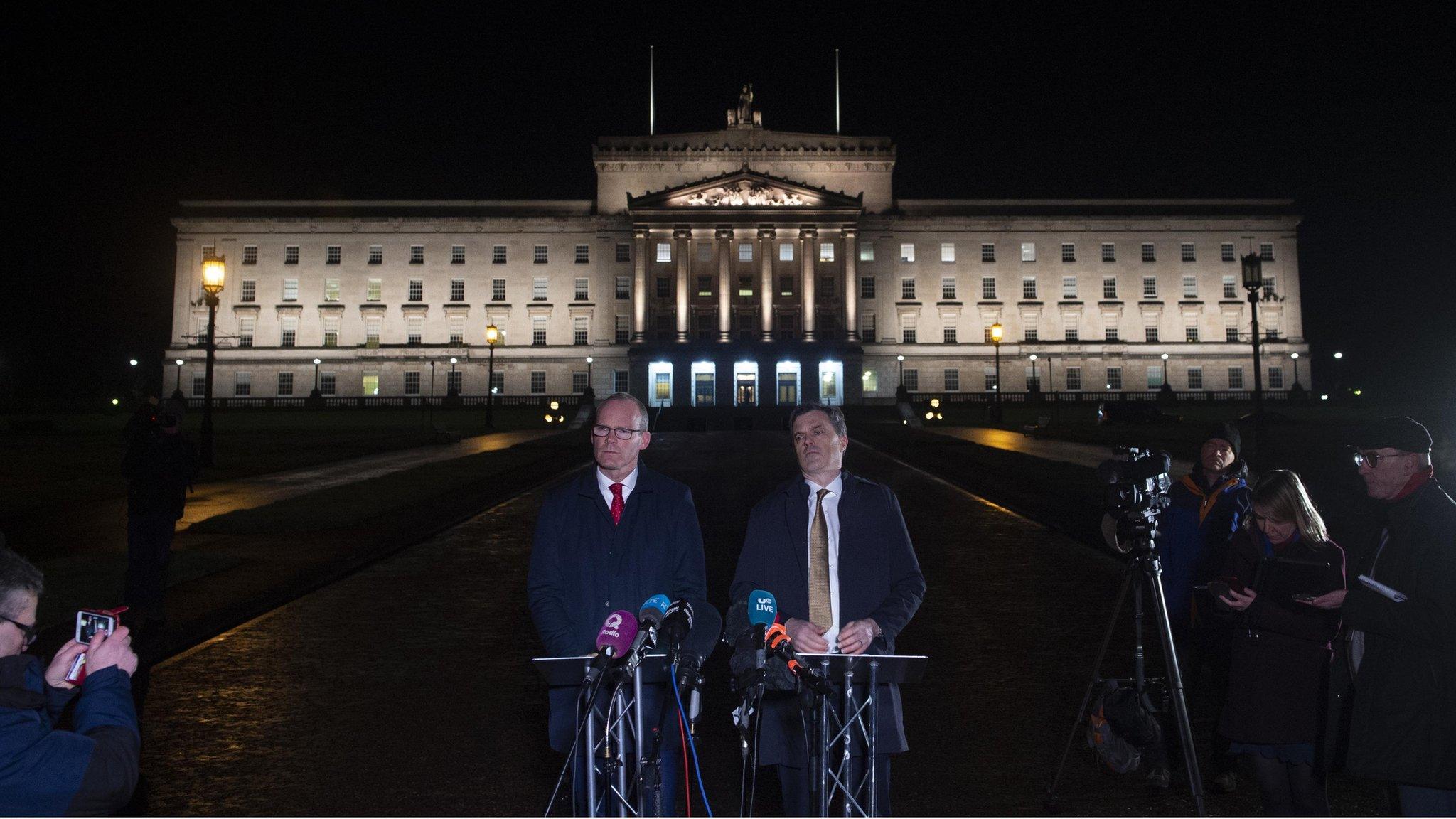
- Published9 January 2020
